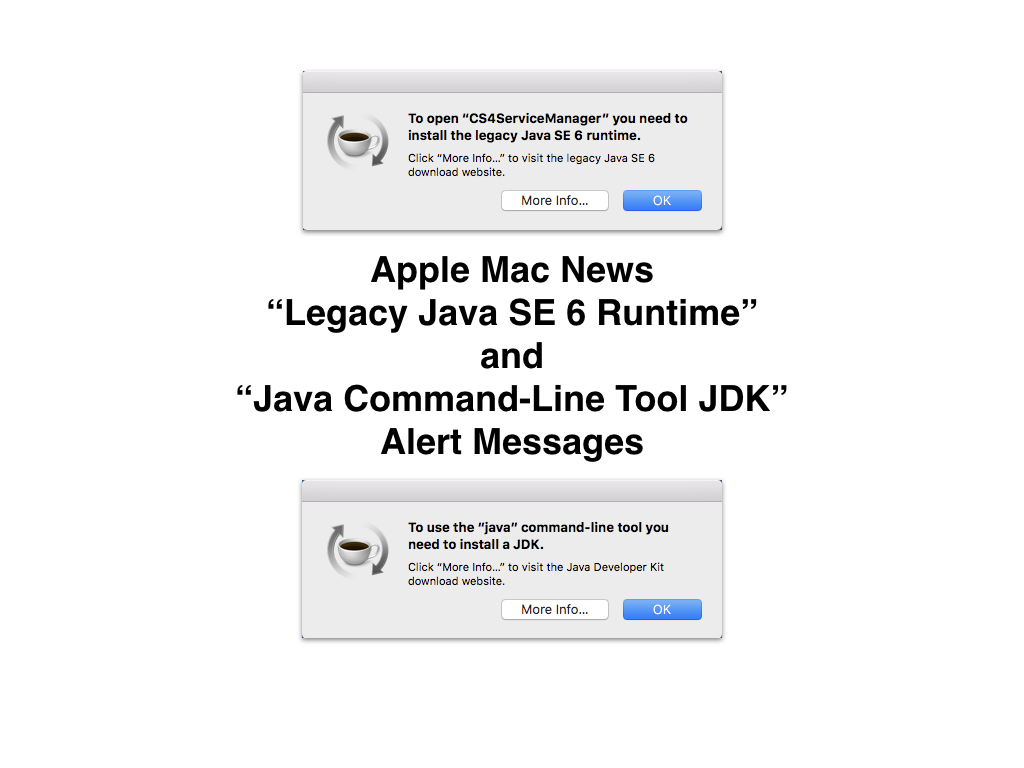

- #To use the java command line tool mac sierra how to#
- #To use the java command line tool mac sierra mac os x#
- #To use the java command line tool mac sierra install#
- #To use the java command line tool mac sierra manual#
the confirmation window that shows command line developer tools is being downloaded Installation screenįinally, click on the Done button to complete the installation process.Īfter that run some beautiful code from the terminal. After that, the installation will kick in and should not take too long. Therefore, as a result of agreeing to license the download the command line tools is triggered. Hence click agree on the license agreement window to continue with the installation. Most importantly, as with every application, you have to agree to the license to proceed with the installation.
#To use the java command line tool mac sierra install#
Subsequently, click on the Install button to proceed with the installation of command-line developer tools.

The popped-up window should look similar to the image below xcode-select -install Installation confirmation window
#To use the java command line tool mac sierra mac os x#
This is due to a security from Mac OS X for application outside the APPStore. Mac OS X / DMG, you may have a message the file is corrupted.


Note : OpenJDK has too many bugs for running editix, use official Java VM from oracle. After executing the command below a pop-up window should open with the option to install. Open a terminal/console and use 'java -version' for checking your current version. With your terminal opened, type the command below into the prompt and press the return key to execute it. Open your terminal to begin the process of installing command-line tools on macOS Catalina. The good news is the procedure has not changed much across the various versions of macOS Install Command Line Tools Just like with all new versions of macOS you have to install command-line tools to run commands. Read more about all the new feature of macOS Catalina from Ĭommand-line tools on macOS Catalina is essential to running of commands and development task. MacOS Catalina is the first of its kind to support only 64-bit applications and activation lock. So with the release of macOS Catalina, we say goodbye to macOS Mojave (version 10.14). macOS Catalina is the sixteenth release of Apple’s desktop operating system for Macintosh computers. Apple just made available a major release of its macOS codenamed macOS Catalina (version 10.15).
#To use the java command line tool mac sierra how to#
Before we get right to how to install command line tools on macOS, let us look at what macOS Catalina is all about. You have to install the public key with which the repository is signed.Īpt-key adv -keyserver -recv-keys E6A233DBE3AFBEFC The repository is now also secured and signed. Then, just run apt-get update, followed by To install jEdit via Debian Linux apt-get (this is also for any Debian based Distros like Ubuntu),Īdd the following line to your /etc/apt/sources.list: deb /.Users can install jEdit from the portage tree by running FreeBSD users can find install jEdit from the ports collection by running:.Option 2 - easy install on some flavors of *nix If you would like to write installation instructions for a platform Installation instructions are available for the following operating systems: Do not use yourīrowser's "Download Link" command on the above links. To pages where you can select a download mirror. Note: the above links are not to the files themselves, but rather
#To use the java command line tool mac sierra manual#
Option 1 - manual download and install on any OS Java Runtime version 11 (aka Java 11) or later is required for jEdit 5.6 and later.īefore installing jEdit, make sure you have a compatible Java virtual machine see the compatibility page for details. Java Runtime version 1.8 (aka Java 8) or later is required for jEdit 5.4 and later. Java Runtime version 1.7 (aka Java 7) or later is required for jEdit 5.2 and later. Java Runtime version 1.6 (aka Java 6) or later is required for jEdit 4.4 and later. Last Site Update: 03 September 2020 | Stable Version: 5.6.0


 0 kommentar(er)
0 kommentar(er)
